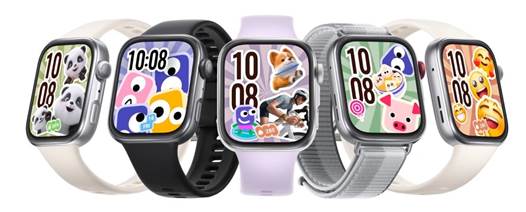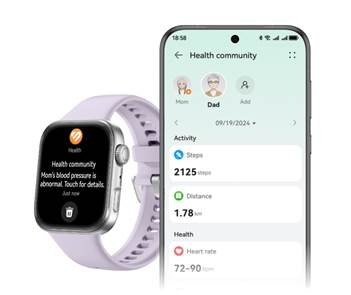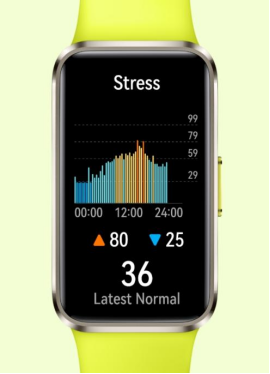Smartwatches promise better health, but do
they deliver? Many people use them to count steps, track sleep, and monitor
heart rate. Others rely on them to build habits or detect warning signs. But
whether these tools lead to real health improvements depends on how people use
them. With more health features appearing on the market, it’s worth asking: are smartwatches like the
Huawei Watch Fit 4, often discussed alongside the Watch Fit 4 Price, making a meaningful difference in users’ well-being, or just collecting data?

Measuring Impact on Physical and Mental Health
Smartwatches help users become more aware
of their daily habits. That awareness can drive change, especially when
combined with clear goals and consistency.
Help users move more
Most smartwatches set daily activity goals,
such as step count or active minutes. They send reminders to stand, stretch, or
take a short walk. Over time, these small nudges can reduce sedentary behavior.
Users often become more motivated by seeing visual progress. Rings, badges, or
daily streaks turn physical activity into a challenge. That extra layer of
feedback can push people to reach their goals and maintain them long-term. Some
watches also detect exercise types like running or cycling and record duration,
pace, and heart rate. This level of detail gives users a better picture of
their overall fitness and encourages more movement each day.
Improve sleep quality with data
Poor sleep affects energy, mood, and
long-term health. Many smartwatches track total sleep time, sleep stages, and
restlessness. Some even offer sleep scores or insights into bedtime patterns. With
this information, users can adjust their habits—like reducing screen time at night or avoiding caffeine late in the
day. Over time, these changes can lead to better rest and improved focus during
the day. Some users also use smartwatches to set gentle wake-up alarms that
vibrate at the right point in their sleep cycle. This can lead to feeling more
refreshed without loud disruptions.
Support heart health and early detection
Many smartwatches track heart rate 24/7.
Some alert users when their heart rate is unusually high or low, even at rest.
Others include features like ECG or irregular rhythm detection. These tools don’t replace doctors but can prompt users to
seek help earlier than they might have otherwise. Advanced models also measure
blood oxygen levels or monitor breathing during sleep. These metrics can help
detect potential issues, such as sleep apnea or respiratory concerns. While not
every user acts on this data, the option to track and review it encourages a
more proactive approach to heart and lung health.

Factors That Influence Real Health Benefits
While smartwatches offer health tools,
results vary based on how users engage with them. The device alone won’t create change—it’s the habits that matter.
Consistency matters more than features
Wearing a smartwatch occasionally won’t make a big difference. The people who
benefit most tend to wear them daily, review their data, and act on the
insights. They use the reminders, track patterns, and stick to goals. Health
apps that pair with the watch also help. These platforms visualize trends,
suggest improvements, and keep users accountable. Combining the smartwatch with
a mobile app creates a stronger habit loop and increases motivation.
Behavioral change is key
Smartwatches can prompt action, but users
still have to follow through. If someone sees that they’ve only taken 2,000 steps, they must
choose to go for that extra walk. The watch can’t move for them. People who already have a growth mindset—wanting to improve their health—are more likely to benefit. For others,
the data alone may not be enough to spark real change unless paired with
coaching, reminders, or external motivation.
Conclusion
Smartwatches can improve health, but only
when used consistently and with purpose. They help people build better habits,
stay more active, and spot potential health concerns. But like any tool, they
depend on how people use them. For users who track, reflect, and act on what
their smartwatch shows, the benefits are real. From walking more to sleeping
better, these small steps lead to larger improvements over time. Smartwatches
don’t guarantee better
health—but they make it easier to aim for it, one step, one breath, and one
decision at a time.



